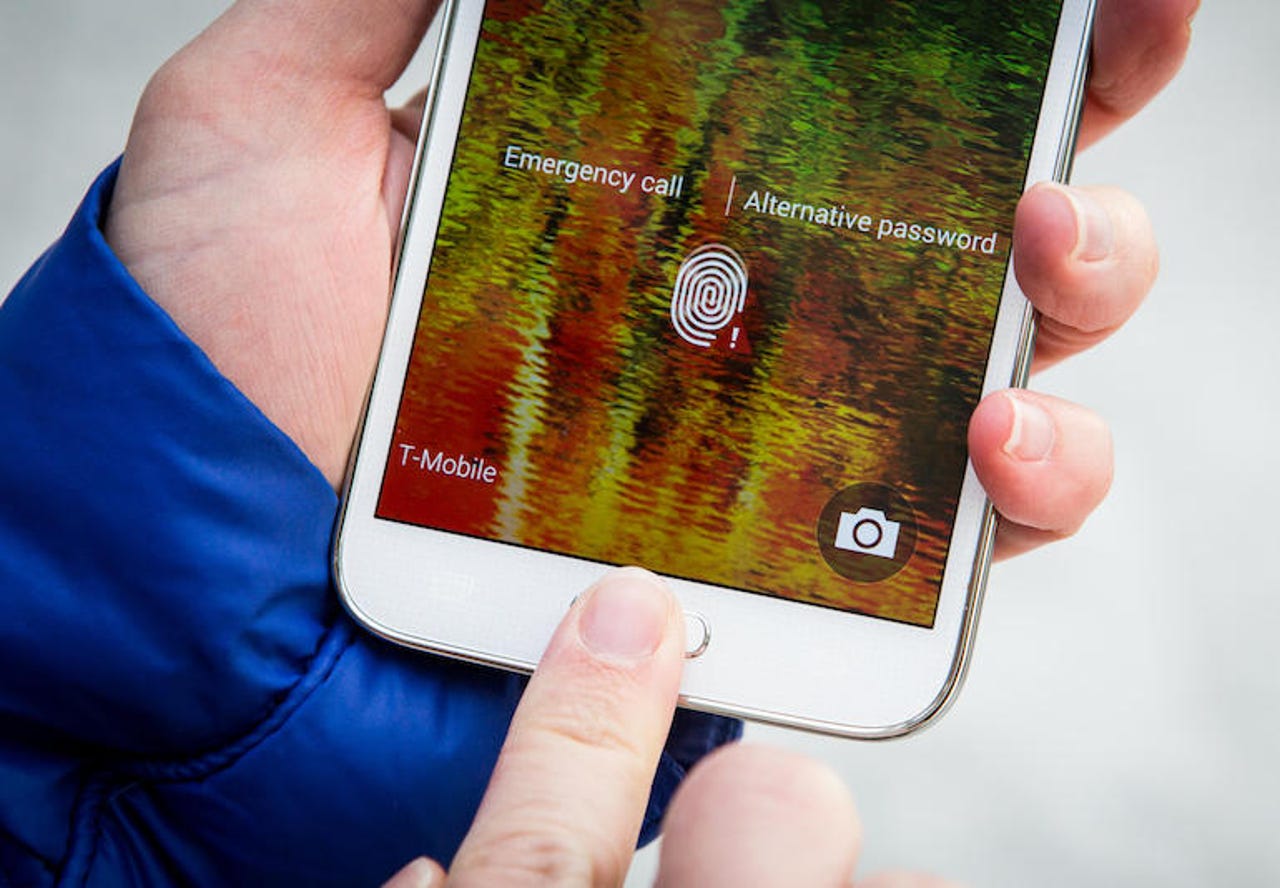To unlock phone, feds force occupants to turn over fingerprints


(Image: CNET/CBS Interactive)
It's never good when the feds come knocking at your door. But when they arrive with a warrant not just for your fingerprint -- but anyone who's there -- that's a whole different ballgame.
That's exactly what happened earlier this year, according to a recently discovered court filing.
Forbes, which first reported the story, found that the Justice Department (DOJ) in May demanded all occupants of a California property to turn over their fingerprints.
The order gave the feds the authority to "to depress the fingerprints and thumbprints of every person who is located at the [subject premises] during the execution of the search and who is reasonably believed by law enforcement to be the user of a fingerprint sensor-enabled device that is located at the [subject premises] and falls within the scope of the warrant."
In other words, the feds forced everyone on the premises to unlock the phone.
The DOJ argued that the fingerprints weren't subject to the Fifth Amendment, the right to silence and protection against self-incrimination, and were vital in unlocking the phone.
The warrant and other supporting documents weren't made public, according to the publication and a search of public court documents.
This isn't the first time a court has allowed the feds to force someone to unlock their phone with a fingerprint, but the May order pushes the scope to the next level.
A judge in Los Angeles also in May compelled a suspect in a gang-related case to unlock her iPhone with her fingerprint. The court order allowed the FBI to obtain her fingerprint less than an hour later, gaining access to the data stored in the Apple smartphone.
Apple responded by adjusting the iPhone's fingerprint software to make it more difficult for the feds to force a suspect into turning over their fingerprints.
In this cat-and-mouse game between the tech industry and law enforcement, this new case might serve as a renewed reminder that fingerprints may not be as secure as a good, old-fashioned passcode.